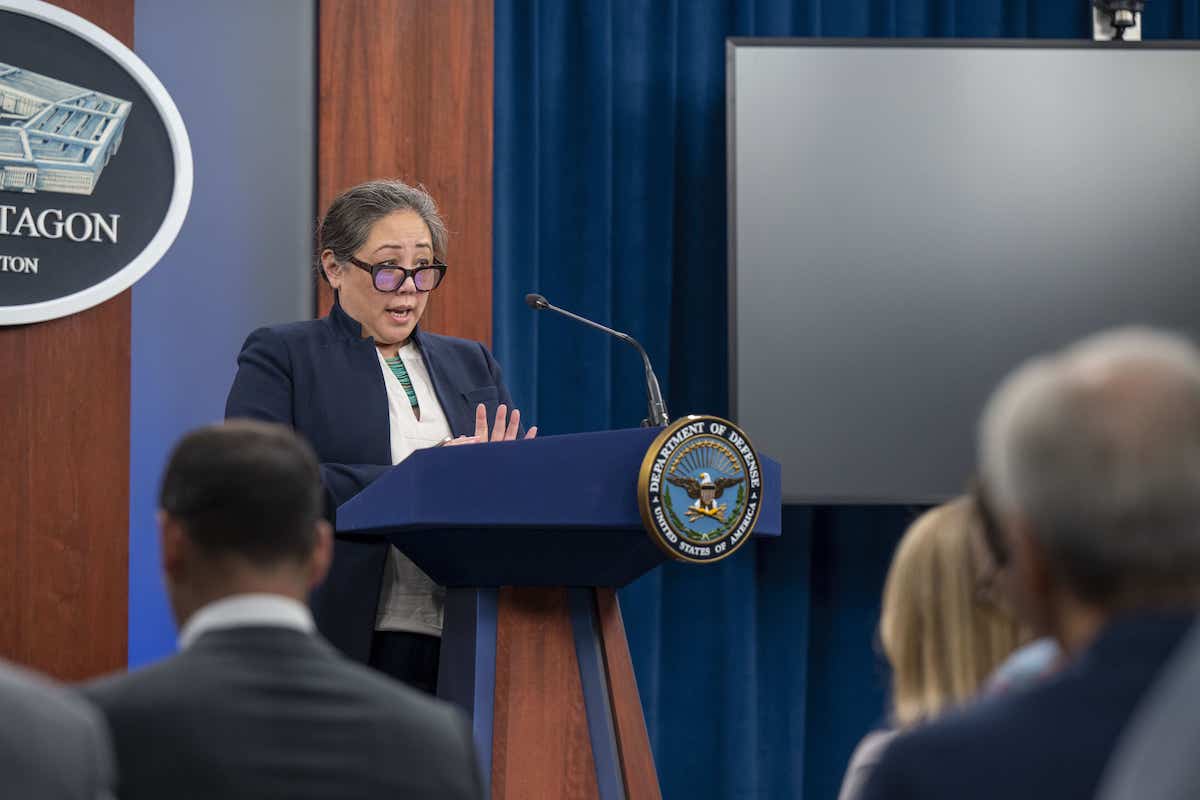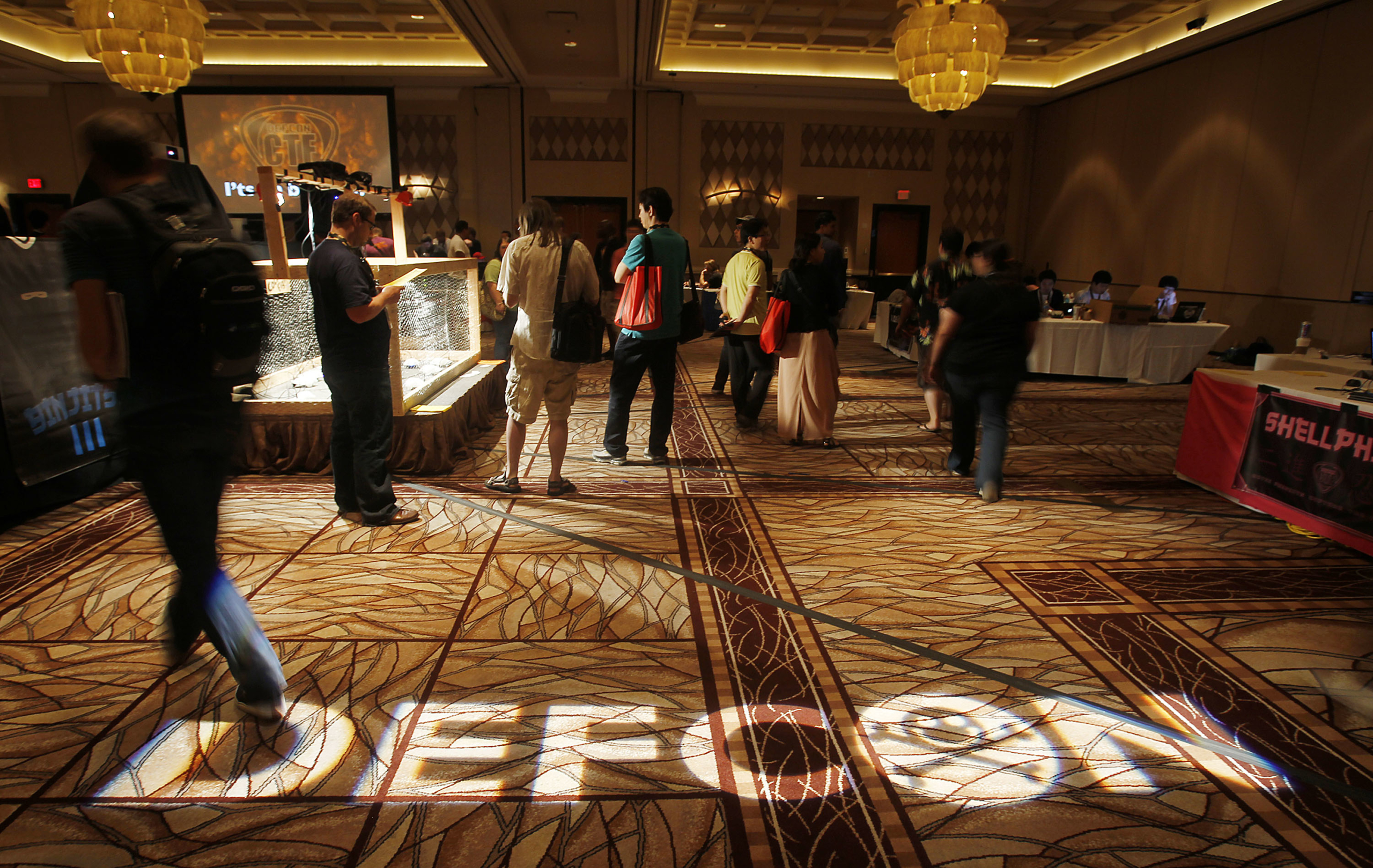Pentagon’s Unclassified Cyber Strategy is Influenced by Russia-Ukraine War, China
The newly unclassified strategy anticipates election security issues and suggests an independent cyber service.
Deputy Assistant Secretary of Defense for Cyber Policy Mieke Eoyang talks to members of the press in Washington, D.C., Sept. 12, 2023. Photo credit: Senior Airman Cesar Navarro / DVIDS
The Defense Department’s unclassified summary of its 2023 cyber strategy presents a broad-ranging plan informed by the lessons learned from the Russia-Ukraine war, as well as the growing tensions between the U.S. and China in cyberspace.
“There are some shifts that reflect our real-world experience for the department in the time period between 2018 and 2023 to include our experiences of observing the conflict in Russia-Ukraine that have shaped and refined our understanding of the role of cyber in warfare, the ways in which we defend the homeland, and, of course, the importance of working on strengthening the cybersecurity of our partners and allies,” Deputy Assistant Secretary of Defense for Cyber Policy Mieke Eoyang told reporters at a roundtable organized by George Washington University.
The Pentagon’s unclassified cyber strategy comes on the heels of the White House’s national cybersecurity strategy implementation plan providing federal agencies with actionable steps to improve the nation’s security posture. While it is unclear whether a similar implementation plan will follow the Pentagon’s new cyber strategy, Eoyang said there are “mechanisms in the Department of Defense that we use to make sure that we are moving forward with that.”
Some lessons learned from the Russia-Ukraine war include the importance of cloud migration, the impacts of satellite communications disruption, as well as people’s ability to tell their story to the world during an armed conflict.
“The ability of Ukrainians to move their data extraterritorially, but still maintain access to it was really important,” Eoyang said. “We saw the Russian attempts to disrupt satellite communications as something that, I think, many people are still trying to understand that aggregate effect of that on the conflict. But certainly, it is something that we are looking at very carefully.”


